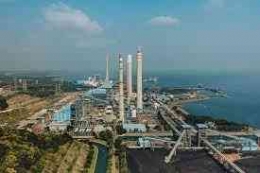The application of carbon tax in Indonesia is limited to Coal-fired Steam Power Plants. Carbon tax in Indonesia will encourage energy companies to reduce their carbon footprint. By imposing a monetary cost on carbon emissions, companies will have a financial incentive to adopt cleaner technologies, improve energy efficiency and invest in sustainable practices. This shift towards greener operations will not only help mitigate worse climate change but also spur innovation, leading to the development of new industries and job opportunities. As such, carbon tax will drive the transition to a low-carbon economy, position Indonesia as a leader in sustainability, and attract environmentally conscious investors.
Carbon tax also provides an opportunity to allocate funds for sustainable development initiatives. Indonesia is expected to earn nearly IDR 24 trillion in carbon tax revenue by 2025. Faced with rich biodiversity and fragile ecosystems, directing a portion of the carbon tax revenue to conservation efforts will allow Indonesia to protect its natural resources and encourage sustainable land use practices. In addition, investing in ecotourism and promoting sustainable agriculture will not only preserve the environment but also provide alternative sources of income for local communities. This approach ensures that economic development can be achieved in harmony with environmental conservation and creates a stable and sustainable future for Indonesia.
The implementation of carbon tax in Indonesia has enormous potential to promote economic stability while addressing climate issues. However, the implementation of carbon tax alone will not optimally address the overall climate issue without cross-sectoral and institutional synergy. In addition, Indonesia is recovering from the Covid-19 pandemic and facing an uncertain global economy so the government has postponed its implementation until 2025.








